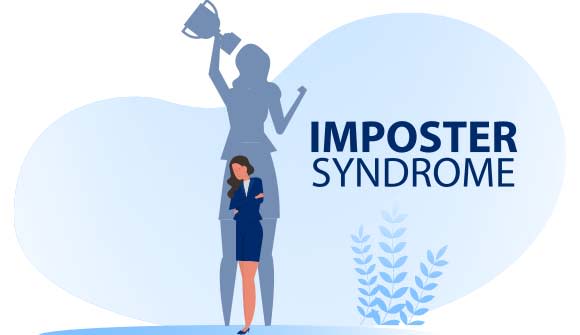New Year, new you?
8 tips for setting (and achieving) your 2020 resolutions.
Article Author: Guest Columnist
Article Date:

It’s that time of year again: time to make our New Year’s resolutions, those lofty goals we aim for and (probably) fail to achieve over the spring, then feel bad about over the summer, and then plan to actually achieve in the following year. Broken resolutions are so normal they are cliché. Why does this happen? Why do we aspire to some worthy goal and then not fulfill it?
I believe that when we don’t achieve our resolutions, it’s because something about them wasn’t quite right.
5 common reasons people fail to meet their goals
- The resolution represents something about ourselves we don’t like. Trying to improve yourself by rejecting yourself leads nowhere. Resolutions rooted in self-criticism, guilt or shame don’t honor who we are, and we will probably undermine them. For example, the age-old goal of losing weight in the New Year is often rooted in self-consciousness about our bodies rather than a place of loving our bodies and wanting to improve our health.
- It has an “external locus of control.” What’s that? It’s when we are motivated by forces outside ourselves. Coercion, pressure and even inspiration aren’t enough to motivate us long-term. If we take on a goal that really belongs to someone else, we are unlikely to keep at it.
- The goal is inauthentic. That is, it doesn’t reflect our identities, abilities, motivations, patterns and possibilities. When we make resolutions that don’t reflect our own values, they’re unlikely to stick. At best, they embody aspiration rather than true intention.
- It doesn’t account for the pain of transformation. Resolutions tend to focus on the positive experience of victory and success. The fact is, change is hard and costly. Ignoring this in favor of positive thinking will leave us unable to deal with hardship, and we will fold under the challenge.
- We don’t value staying the same. We have reasons for being the way we are, even if the way we are has its downsides. We resolve to make positive changes in our lives because of the value we see in the change. But without finding value in the way we are, and understanding why we behave in certain ways, we’re undermining our ability to keep our resolutions.
Of course, this doesn’t mean our resolutions are doomed to fail, and self-improvement is important in many ways. The real question is this: How can we become more effective at making positive change?
We are most likely to engage in positive growth and change when we’re internally motivated when the changes we seek align with our identity, and when the journey consists of small, attainable steps —with a lot of appreciation and encouragement along the way.
8 best practices for developing effective resolutions for the New Year (or any time)
- Consider your motivations. Why do you want to undergo this change in your life? Is it because you “should?” Is it because your significant other, your employer, or your favorite health guru says it’s the right thing to do? Or, is it because the change aligns with who you are, and who you want to become?
- Commit to micro-goals. How do you eat an elephant? One bite at a time. On any given day, we are usually unable to accomplish a massive, world-shaking change. But we can usually make a small modification to our lives. I call it “micro-dosing goodness.” A good thing, no matter how small, is still good. Maybe you won’t run a marathon today, but what about walking to the mailbox and back, and enjoying the sunlight along the way? Tomorrow, it could be a walk around the block, then a jog, and so on.
- Make your goals sustainable. The resolutions we will keep are the ones we can sustain over a lifetime. Learning how a new diet and lifestyle affect your life will help you integrate them long-term moving forward. Take a vegetarian diet, for example. Maybe you can force yourself to only eat broccoli and tofu for a few days, or even a few weeks. But is it likely that you will do that for the rest of your life? Taking time to research vegetarian recipes and meat alternatives, while choosing to eat meatless a day or two each week at first, can help you research new ways of preparing meals and changes in your daily life to accommodate vegetarian eating.
- Add in something good. We haven’t gone far enough if we only resolve to eliminate something negative. We also have to add in something positive. For instance, if you decide to watch less TV, what will you replace it with? What will help you relax, unwind and enjoy yourself? Unless you can fulfill through other means the good you find in watching TV, you’ll eventually go back to watching too much TV.
- Think of your resolution as an experiment. Rembrandt did not start his artistic career painting masterpieces. Lindsey Stirling didn’t play epic violin the first time she put bow to string. Don’t consider it a failure if you try something and it doesn’t work perfectly. Consider it an experiment. Allow yourself to try, fail, learn, refine and grow. If you want to exercise more in 2020, be willing to try weightlifting, yoga, running, cycling and other types of physical activity until you find the one you enjoy and that feels right for you.
- Commit to learning. If you are experimenting with change, try to glean as much as you can from the experience. Reflect: what does your experience teach you about yourself and others, about life and how you relate to it?
- Find accountability partners. We’re better together than alone. Invite others on the journey as you seek to make meaningful changes in your life. Let other people who are supportive of you know what your goals are so they can encourage you along the way.
- Celebrate! Give yourself credit for each step you take, no matter how small. Be sure to reward yourself regularly, especially when you accomplish a major goal. Enjoy your success.
Guest columnist Craig Brown, LHMC, LMFT, is a licensed mental health counselor at Baptist Behavioral Health. If you’d like to work on goal-setting and changing negative patterns in your behavior in 2020, call 904.376.3800 to make an appointment with Baptist Behavioral Health.



